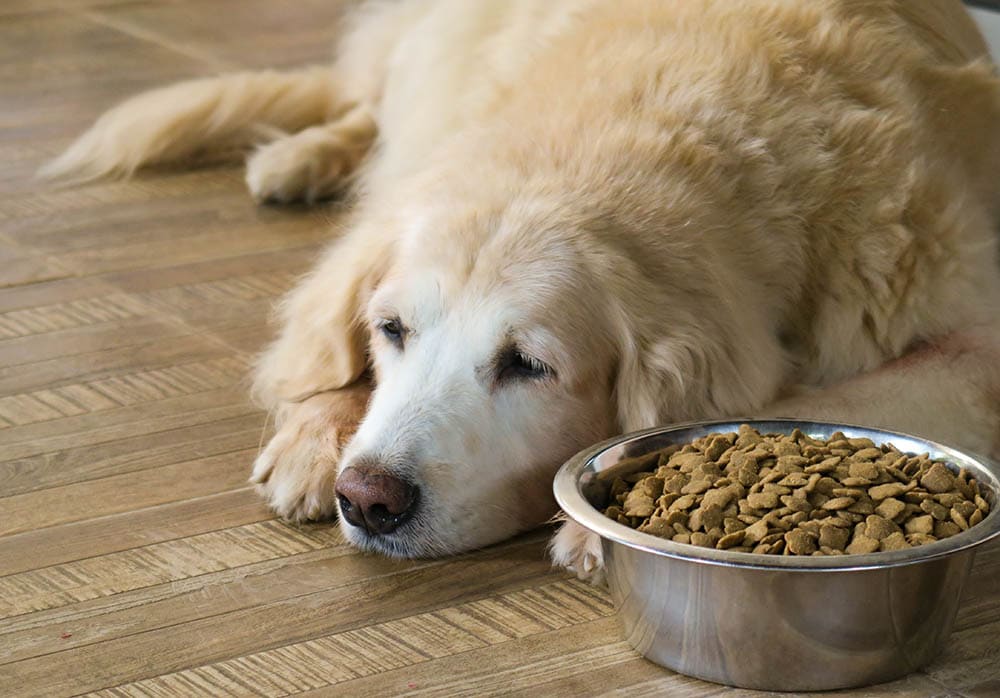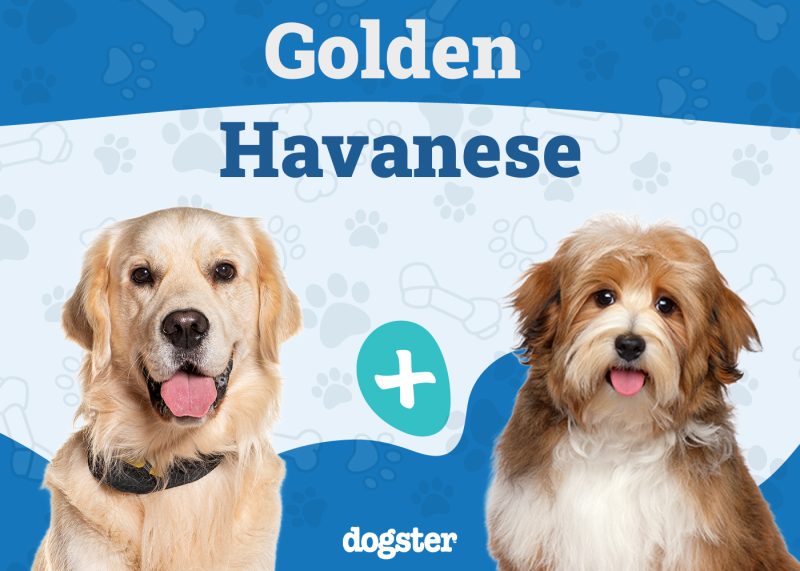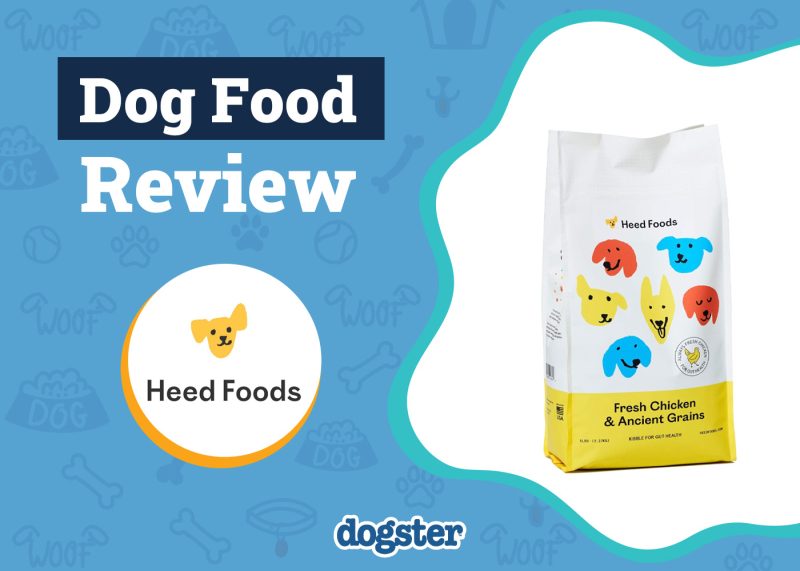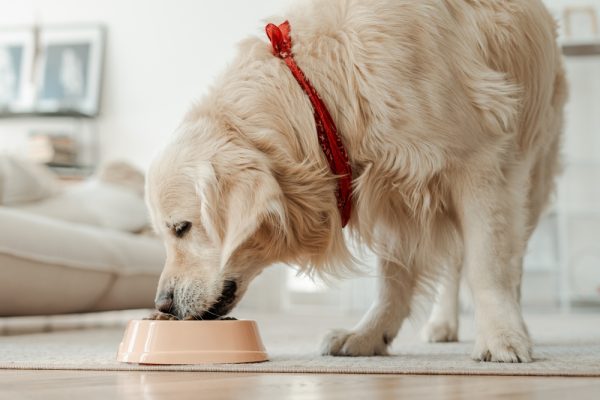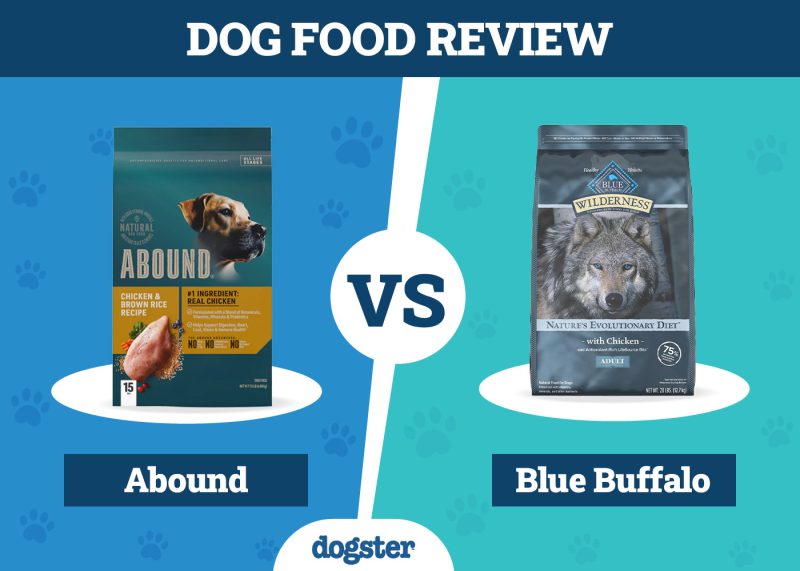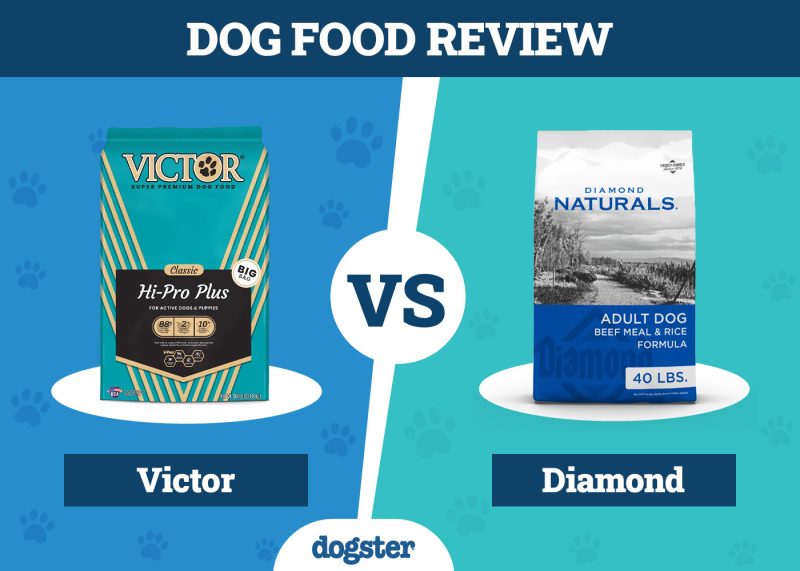With the rise of “boutique” pet foods and smart marketing, dog food allergies are a hot topic. While marketing experts have made the public believe that grains, “fillers,” and processed foods are all the culprits, the reality is that most food allergies we see in dogs can be attributed to the protein source. In addition, it’s important to remember that any dog can be allergic to anything, including food, environmental sources, contact sources, fleas, etc.
Diagnosing the source of dog allergies can be difficult, especially when it comes to food. In this article, we’ll discuss the three main ways that food allergies in dogs can be diagnosed and what types of diet options there are if your dog has food allergies.

The 3 Ways to Diagnose Food Allergies in Dogs
1. Elimination Food Trial

Dogs are going to most commonly be allergic to the protein source in their food. This includes chicken, beef, lamb, salmon, white fish, venison, eggs, etc. An elimination food trial is easy in theory to complete but can be very difficult for some households to adhere to. Here’s a step-by-step guide on what to do. As always, an elimination diet for dogs should be discussed, and details should be ironed out with a veterinarian first.
- Write down the brand, flavor, and ingredients of any dog food, treat, or human food your pup has ever received. Pay close attention to the protein sources and common ingredients.
- Once your list has been made, you need to then put your dog onto either a novel protein diet or a hydrolyzed diet. The diet either needs to contain a protein source and ingredients that your dog has never been exposed to before (novel protein) or be a diet that is formulated to reduce allergic reactions (hydrolyzed diet). Which option to choose should be discussed with a veterinarian.
- Your dog should be weaned onto the new diet over a 1–2-week period. Every day, mix in more of the new diet and less of the old. A slow wean helps to decrease any GI upset.
- In addition to the new food, your dog also needs to be put on the same novel protein treats or hydrolyzed treats. Absolutely no outside food, treats, or handouts should be given. This includes their regular preventatives as well.
- Pending that your dog does not suffer any GI upset, the new diet should be strictly adhered to for at least 2–4 months (depending on a veterinarian’s recommendations). It’s important not to flip flop food if “nothing works” in a week or two as this will just cause your dog’s immune system and GI system more havoc.
- Speak with a veterinarian about re-introducing certain ingredients one at a time after 2–4 months. If your dog did great on the food trial (had a decrease in allergy signs) but then has a recurrence of signs once one or more ingredients are re-introduced, then your dog is likely allergic to that ingredient.
- Discuss what types of foods to feed or not feed your dog long-term, pending the trial results with a veterinarian.
2. Blood Testing
There are blood tests that can be performed to test for specific food allergies. These tests have to be submitted to one of only a few laboratories that run them. Because of this you may not have results for a few weeks, and it can be expensive, depending on where the veterinarian has to ship the blood samples.
There are also blood tests for environmental allergies as well. Though typically, there are separate panels for food and environmental factors.
Many veterinarians, especially Board Certified Veterinary Dermatologists, do not like the blood tests as much as other diagnostic options. However, if your dog lives in a household where a strict elimination diet trial is not possible, or they have a housemate that they share food and treats with, then blood testing may be a good option.
3. Skin Testing
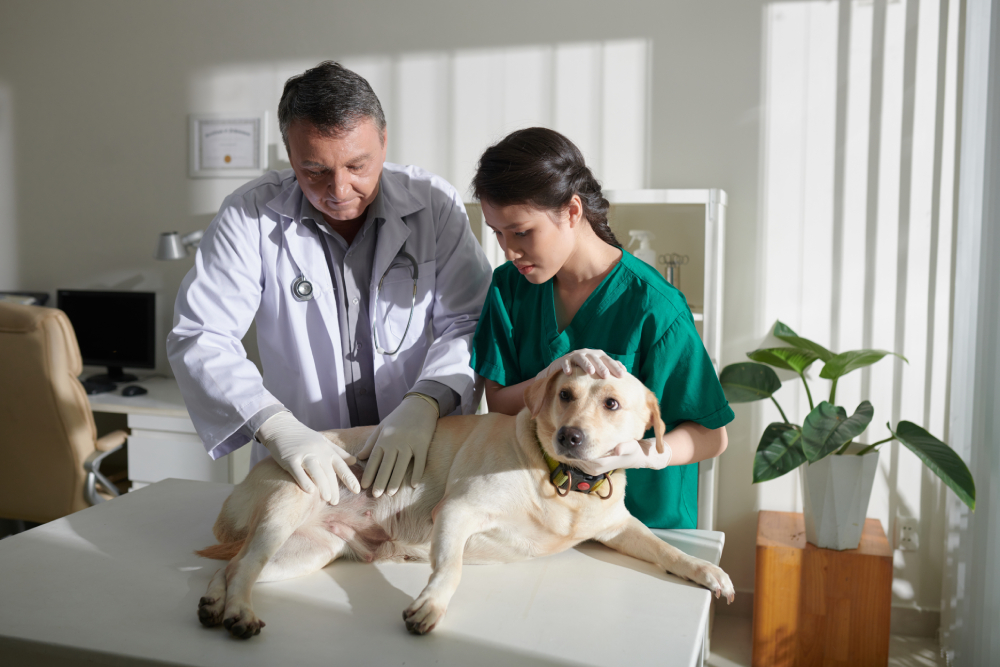
Another option for diagnosing food allergies would be to see a Board Certified Veterinary Dermatologist and speak to them about skin testing. This is a test similar to what is done in people. However, many veterinarians do not believe this is an effective way to rule in/out certain food allergies. The dermatologist will best be able to discuss all diagnostic options, cost, and what is best for your dog.

Food Options for Dogs with Allergies
Once a food allergy or allergies have been diagnosed, there are many good options to feed your dog nowadays. One type of food, as mentioned above, is the hydrolyzed protein diet. These are prescription diets whose protein source has been broken down into smaller molecules typically too small to be recognized by the immune system.
Another diet option, briefly discussed above, is a novel protein. This is a type of protein source that your dog has never been exposed to before. Typical novel protein sources include venison, kangaroo, rabbit, and salmon. These types of foods are also prescription as many OTC foods that claim to be “limited ingredient” sneak in multiple types of proteins. This is because many marketing schemes have convinced the public that grains, corn, and by-products are the enemies. Therefore, many OTC foods will still contain multiple types of proteins but claim to be good for allergies because they don’t include grains. Don’t fall for this! Always speak with a veterinarian about their recommendations, but most of us are going to recommend a single-protein diet with grains.
If you need to speak with a vet but can't get to one, head over to PangoVet. It's our online service where you can talk to a vet online and get the personalized advice you need for your pet — all at an affordable price!

You can also home-cook your dog’s novel protein diet. This needs to be nutritionally balanced, and the veterinarian will likely recommend working with a veterinary nutritionist if you wish to cook your dog’s food at home. This can be extremely time-consuming, and for some families, especially with big dogs, it’s out of their budget to do this. However, the option is there as long as strict nutrition guidelines are followed.
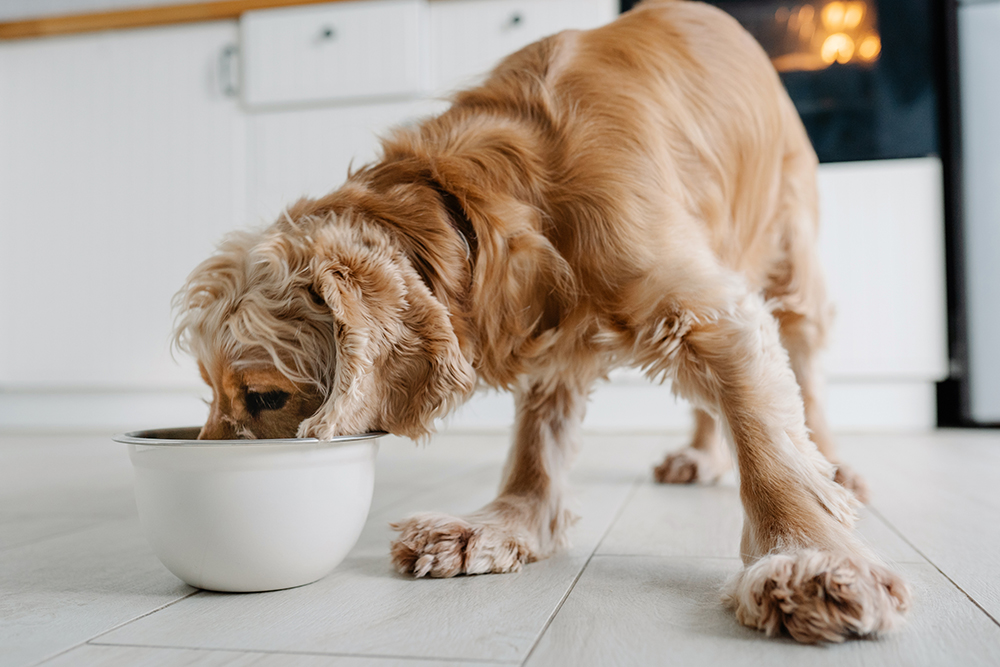

Conclusion
Any dog can be allergic to any type of food and anything in the environment. There are a few diagnostic options for determining what your dog may be allergic to as far as their food. However, the best and most recommended option is the elimination diet trial. You should work with a veterinarian to determine what type of food your dog should be fed during this trial and how long to complete it.
It’s important to remember that this needs to be very strict – every member of the house needs to comply, or it will be a complete waste of time. If and when you and your veterinarian have determined what ingredient(s) your dog may be allergic to, then you can discuss what your dog should be eating long-term. Many people choose to put their dog on a prescription diet long-term as it is the easiest and least time-consuming. However, you can choose to home-cook your dog’s new diet as long as you are working with a veterinary nutritionist.
Featured Image Credit: Phuttharak, Shutterstock
